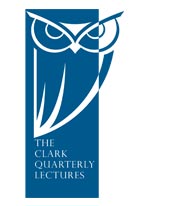Date/Time
Thursday, February 21, 2013
4:00 pm PST
Location
William Andrews Clark Memorial Library
2520 Cimarron Street
Clark Quarterly Lecture
—Thierry Rigogne, Fordham University

The first Parisian cafés opened their doors in the 1660s. Modeled on the coffeehouses that had flourished earlier in the Ottoman Empire and in England, they quickly met with spectacular success. Soon numbering in the hundreds, cafés became a staple of public life and played a major role in the great transformations that rocked France during the Enlightenment and the French Revolution.
The exact origins of the French café and the story of the first establishments are very murky. This reality has not deterred dozens of writers—from academic historians to novelists, from antiquarians to publicists, from journalists to coffee lovers—who have produced numerous histories, few of them based on any facts. The history of the early French café is rife with myths, legends, tall tales, spurious anecdotes, unverifiable stories, and outright fabrications. To retrace the equally fascinating if never-told (actual) history of the creation of the café, this presentation debunks the layers of “fakelore” that have accumulated over three centuries.
Yet, myths and anecdotes began to be created in the seventeenth century along with the very first cafés, and they have their own rich history to tell. They were written as myth, as anecdote, as petite histoire (French for light, inconsequential popular history), as literature, as moralism, as advertisement and as many other things, including as history. This presentation also tracks the formation of a vast corpus of literature about the history of cafés. It analyzes how these texts not only wrote the history of the institution, but also how they played a major part in shaping its evolution.
Thierry Rigogne is Associate Professor of History at Fordham University. His work reassesses the links between commerce, communication and the culture of early modern France. In 2007 he published Between State and Market: Printing and Bookselling in Eighteenth-Century France, which studies the nationwide system that brought books to readers all over France, its evolution throughout the eighteenth century, and the people who made it work. He is currently working on a book that charts the creation of the French café from its sixteenth-century Ottoman origins through the opening of the first Parisian establishments in the 1660s and analyzes their spectacular success in the late seventeenth and in the eighteenth century, which culminated during the French Revolution.

